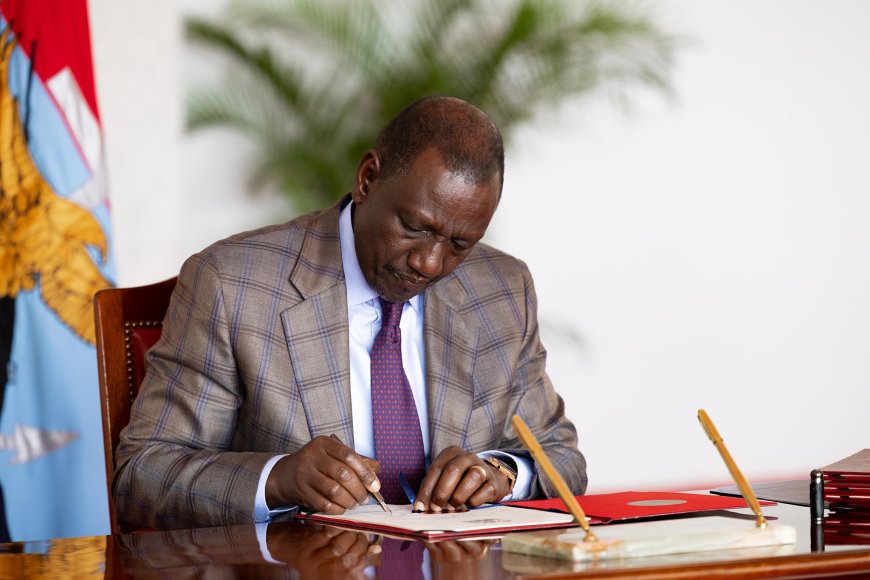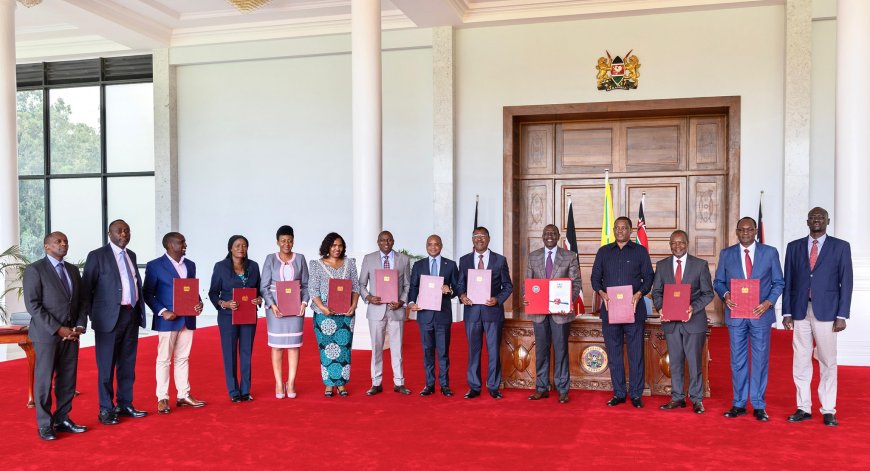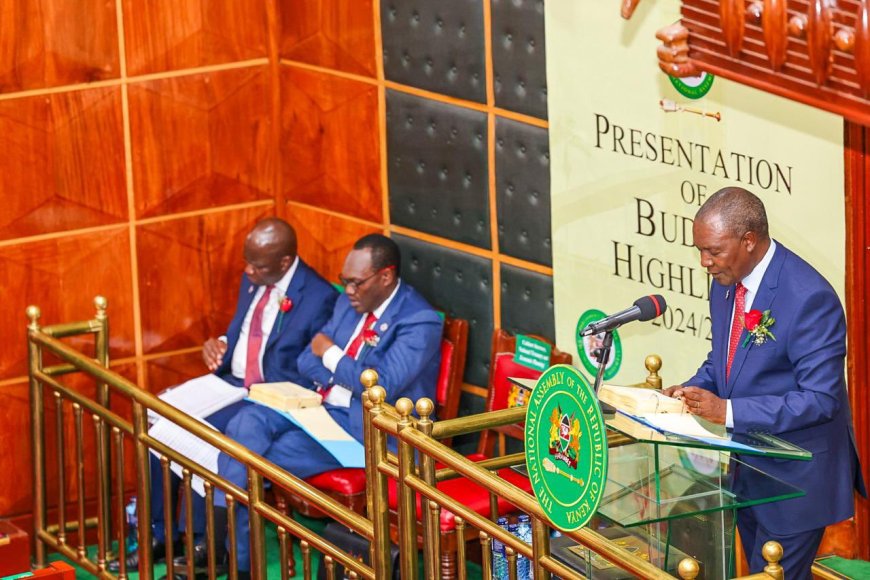Ruto Signs Critical Bill Into Law & Issues 3 Orders To Treasury
He defended his decision to assent to the Appropriations Bill, explaining that Articles 221 and 222 of the Constitution require that the Appropriations Bill be assented to by June 30 every year.

President William Ruto on Friday, June 28 assented the Appropriations Bill 2024 into law at State House Nairobi, days after he announced that he declined to sign the Finance Bill 2024 into law, consequently sending a memorandum to the National Assembly rejecting all clauses of the bill.
He defended his decision to assent to the Appropriations Bill in a statement, explaining that Articles 221 and 222 of the Constitution require that the Appropriations Bill be assented to by June 30 every year.
This is to guarantee the continuity of government operations, especially in providing critical services.
Following the assent, President Ruto instructed the National Treasury to immediately prepare supplementary estimates to reduce expenditure by the amount of revenue that was expected to be generated by the rejected Finance Bill 2024.

President William Ruto poses with the Appropriations Bill 2024 after signing it into law at State House, Nairobi on June 28, 2024. /PCS
"The reduction in expenditure, amounting to Ksh346 billion, will be borne equitably by both levels of government: the National and County Governments.
"With respect to the National Government, the reduction will be borne by the executive, the legislature, the judiciary, and our constitutional commissions," read the statement in part.
At the same time, Ruto declined to assent to the County Allocation and Revenue Bill, which was based on expected revenues from the rejected Finance Bill and instead referred it back to Parliament for reduction accordingly.
"Further, I have directed the National Treasury to immediately submit to Parliament amendments to the Division of Revenue Act 2024 to reflect the reduced revenues occasioned by the rejected Finance Bill," he continued.
The Head of State also tasked the National Treasury to direct all accounting officers to ensure that only critical and essential services are funded, using no more than 15 percent of the budget, until the supplementary budget is approved.
All this comes days after President Ruto, while rejecting the Finance Bill 2024, directed the reduction in expenditure allocations for several sectors within the government.
Among the cuts under the executive arm of the government include allocations meant for travel, hospitality, purchase of motor vehicles and renovations.
"In this regard, I direct immediate further austerity measures to reduce expenditure, starting with the Executive Office of the President," Ruto stated.
Ruto also directed the Judiciary, the county governments and the Legislature to work handily with the National Treasury to facilitate budget cuts.
"County Governments working with the National Treasury also undertake budget cuts and austerity to ensure that we do what I have always advocated for, that we live within our means," the Head of State announced.
Treasury had previously warned of a series of major budget cuts in different sectors in the event the controversial Finance Bill 2024 was rejected in its entirety.
Treasury Cabinet Secretary (CS) Njuguna Ndung'u, in a letter addressed to the Clerk of the National Assembly, warned that failure to pass proposed tax measures outlined in the Finance Bill could result in a substantial revenue shortfall of Ksh200 billion for the fiscal year 2024/25.







